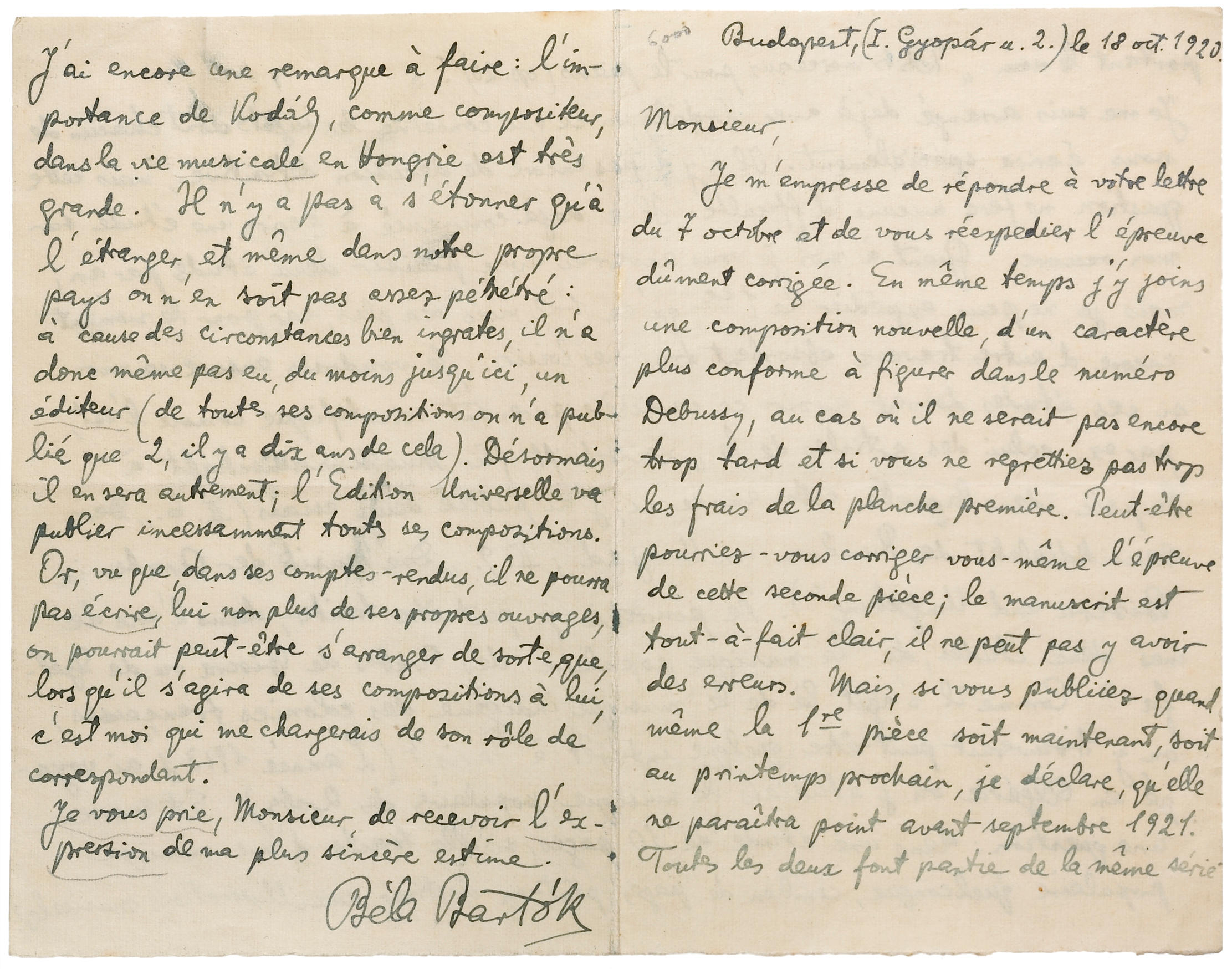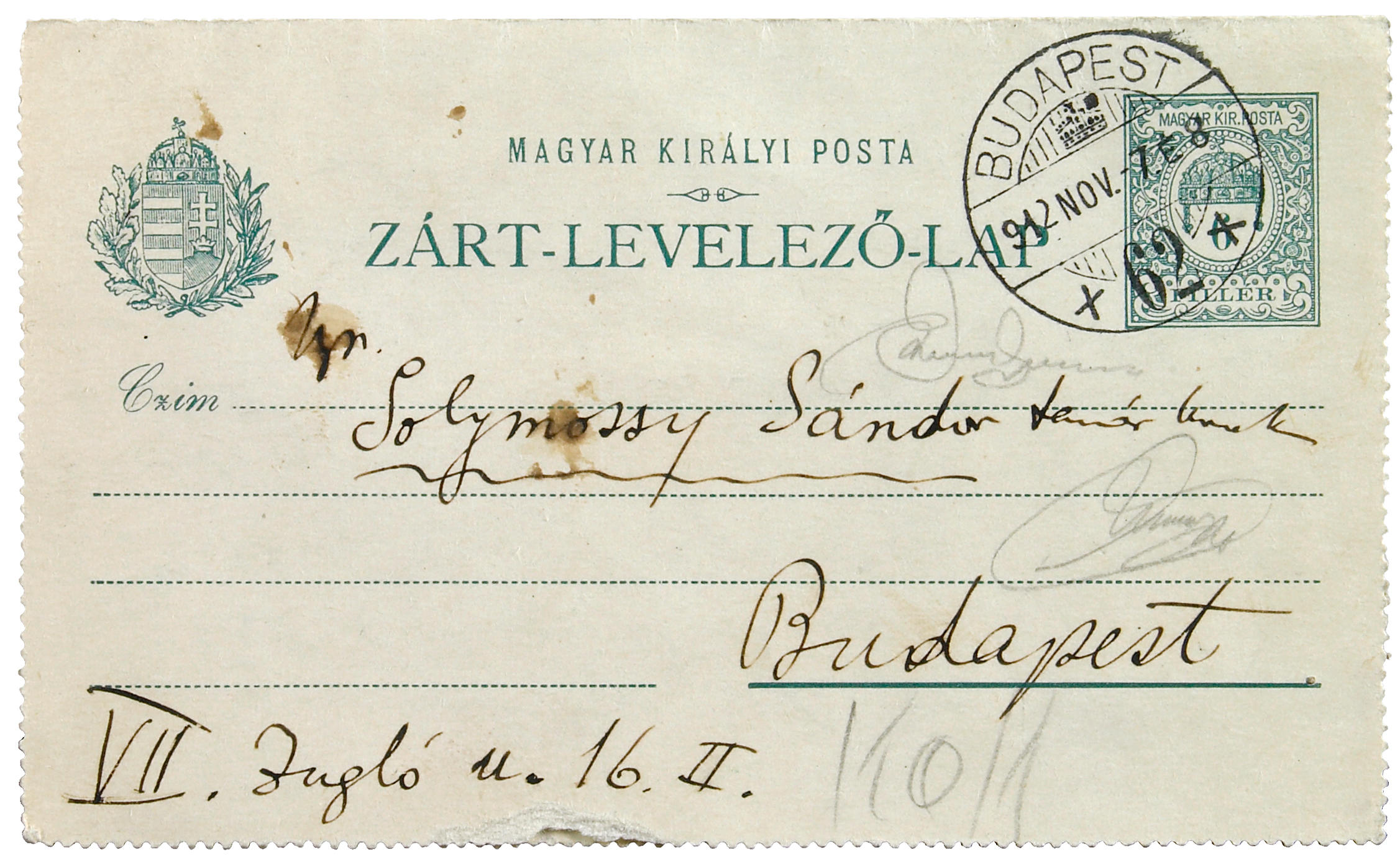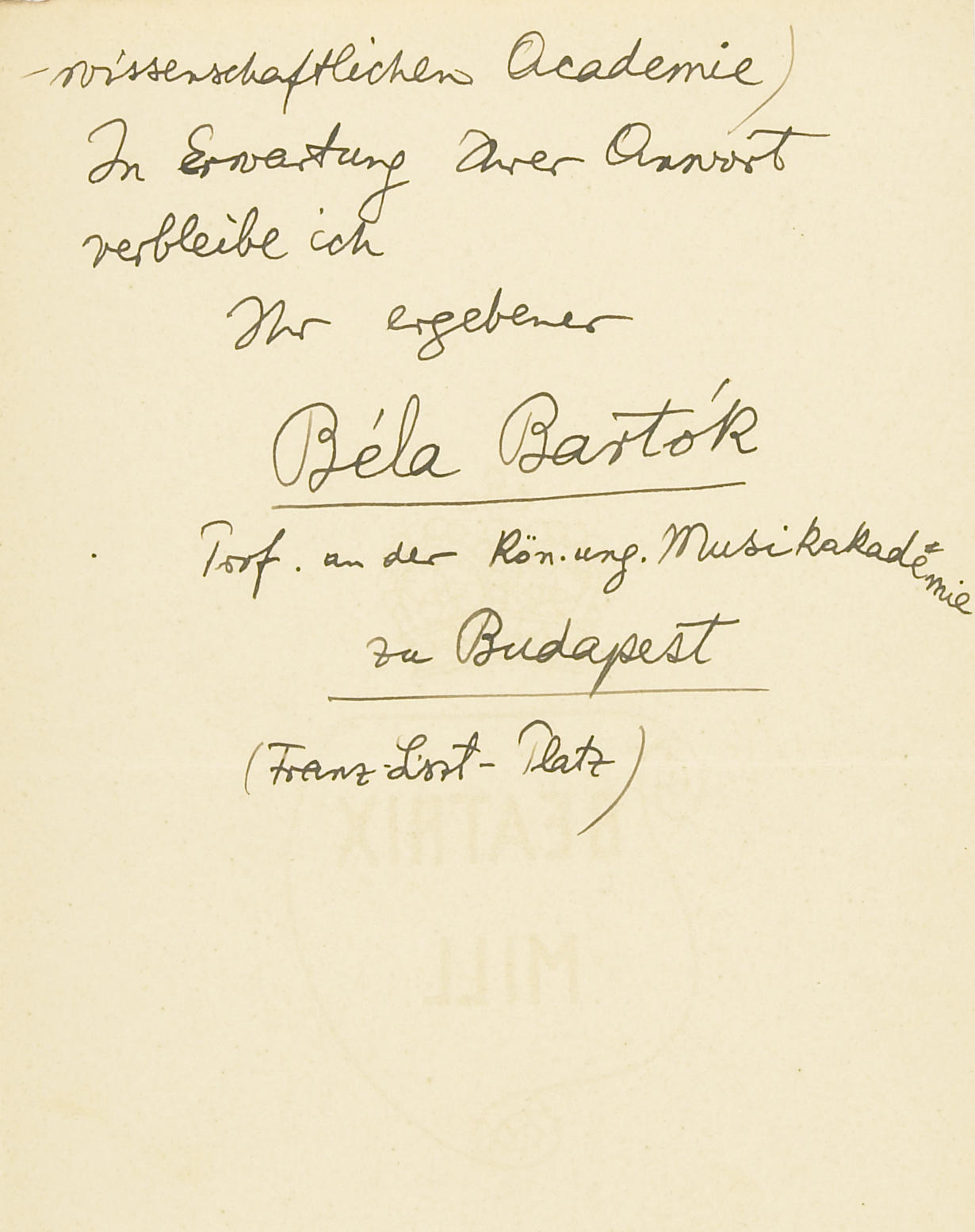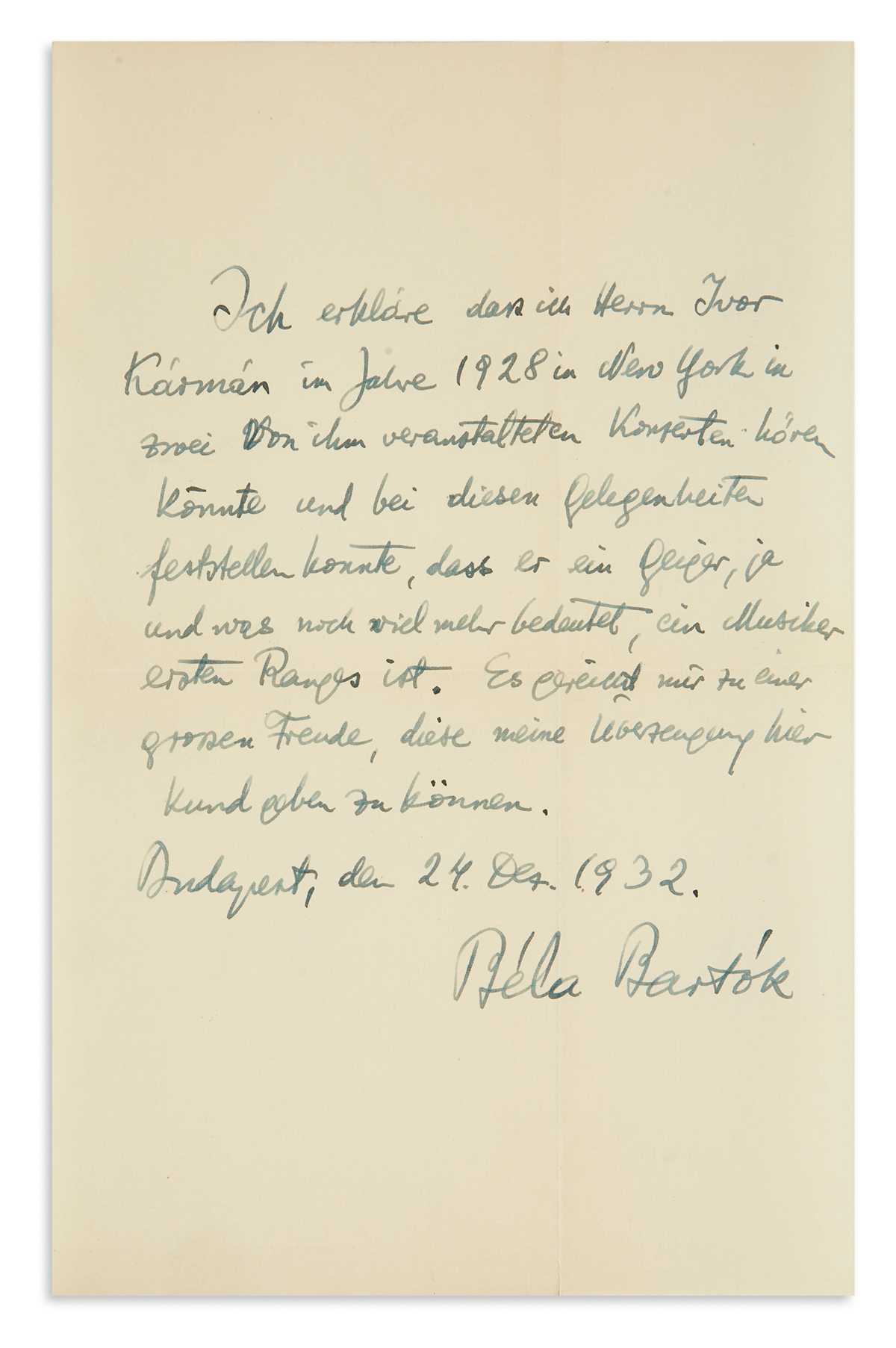BARTOK, Bela (1881-1945). Autograph letter signed ("Bèla"), to Ernö Balogh, Budapest, 2 March 1935. 2 pages, oblong 4to, in Hungarian, in a giltwood frame. "BARELY SURVIVING," BARTOK FACES THE DIFFICULTIES OF PUBLISHING HIS IMPORTANT STUDIES ON FOLK MUSIC Writing in "today's troubled and uncertain times," four years prior to the outbreak of Second World War, Bartok declines Ernö's proposal to travel "over the ocean," presumably to the United States, on another concert tour. Instead he will stay in Hungary -- for "if something bad should happen here at home, at least I would be here too" -- and focus on publishing his research on folk music, an anthology of 485 Romanian kolinda folk melodies, "with the most detailed and precise transcription possible." But having had "a lot of trouble" finding a publisher, the composer has been forced to finance publication himself and hopes to recoup some of the cost by attracting subscribers, "folklore experts and libraries," and asks Balogh's help in finding suitable institutions. Despite help from the Library of Congress who "pulled me out of the ditch," Bartok's outlook is pessimistic: "we here are just struggling, barely surviving." Eight years earlier, Ernö Balogh, a fellow pianist and composer, had been instrumental in bringing his former teacher, Bartok, to America for his first concert tour in 1927. With Kodály, Bartok had begun in 1905 to collect folk music of Eastern Europe, a project that would occupy him throughout his life. In the summer of 1934, he won a full-time position as ethnomusicologist at the Academy of Sciences, where for the following six years he and Kodály led a team of researchers who by 1938 had collected about 14,000 items. He emigrated to the United States and was commissioned by Colombia University to transcribe a large collection of Yugoslav folk melodies. However, his economic situation did not improve and his last years were spent in poverty and neglect, in spite of Balogh's help.
BARTOK, Bela (1881-1945). Autograph letter signed ("Bèla"), to Ernö Balogh, Budapest, 2 March 1935. 2 pages, oblong 4to, in Hungarian, in a giltwood frame. "BARELY SURVIVING," BARTOK FACES THE DIFFICULTIES OF PUBLISHING HIS IMPORTANT STUDIES ON FOLK MUSIC Writing in "today's troubled and uncertain times," four years prior to the outbreak of Second World War, Bartok declines Ernö's proposal to travel "over the ocean," presumably to the United States, on another concert tour. Instead he will stay in Hungary -- for "if something bad should happen here at home, at least I would be here too" -- and focus on publishing his research on folk music, an anthology of 485 Romanian kolinda folk melodies, "with the most detailed and precise transcription possible." But having had "a lot of trouble" finding a publisher, the composer has been forced to finance publication himself and hopes to recoup some of the cost by attracting subscribers, "folklore experts and libraries," and asks Balogh's help in finding suitable institutions. Despite help from the Library of Congress who "pulled me out of the ditch," Bartok's outlook is pessimistic: "we here are just struggling, barely surviving." Eight years earlier, Ernö Balogh, a fellow pianist and composer, had been instrumental in bringing his former teacher, Bartok, to America for his first concert tour in 1927. With Kodály, Bartok had begun in 1905 to collect folk music of Eastern Europe, a project that would occupy him throughout his life. In the summer of 1934, he won a full-time position as ethnomusicologist at the Academy of Sciences, where for the following six years he and Kodály led a team of researchers who by 1938 had collected about 14,000 items. He emigrated to the United States and was commissioned by Colombia University to transcribe a large collection of Yugoslav folk melodies. However, his economic situation did not improve and his last years were spent in poverty and neglect, in spite of Balogh's help.

.jpg)

.jpg)
.jpg)
.jpg)
.jpg)
.jpg)






Try LotSearch and its premium features for 7 days - without any costs!
Be notified automatically about new items in upcoming auctions.
Create an alert